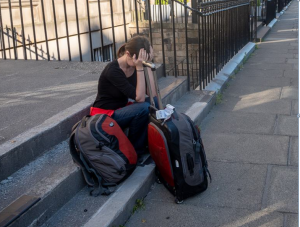Injunctions may provide one remedy – and compensation may be
another
Travelodge and other hotels and provides of bed-and-breakfast who close
their doors and evict homeless occupiers could be opening themselves up
to legal claims.
A report published by The Guardian on-line on 25 March 2020 ‘Homeless
Travelodge Residents turned out on the Street’ states that hundreds of
residents of the budget hotel chain Travelodge, including homeless
families housed there by local councils, have been summarily turned out
on to the street after it closed its premises.
https://www.msn.com/en-gb/news/coronavirus/homeless-travelodge-
residents-turned-out-on-to-street/
Homeless families will have been placed there by local authorities under
the Housing Act 1996.
One solution for local authorities may be to seek an injunction against
budget accommodation hotels and hostels that begin summarily evicting
people in this way.
Injunctions can be obtained from the County Court and High Court
including outside normal business hours, and may be granted over the
telephone. A form N244 needs to be completed and supported with a
statement of truth.
This could prevent the immediate eviction or enable a family to return.
Hotels that summarily eject people would also lay themselves open to
compensation claims and for reasonably foreseeable losses. Given the
possible risks to health, such claims could be substantial.
According to the report in the Guardian The chain issued letters to all
residents on Tuesday asking them to leave as soon as possible as they
were “temporarily closing the hotels until further notice” in the light of
the government’s extended coronavirus physical distancing guidelines
issued on Monday 23 March 2020.
The Guardian points out that the step of eviction flies in the face of
government guidance issued the same day which said that hotels looking
after homeless families who had been placed in temporary
accommodation at in hotels should not close.